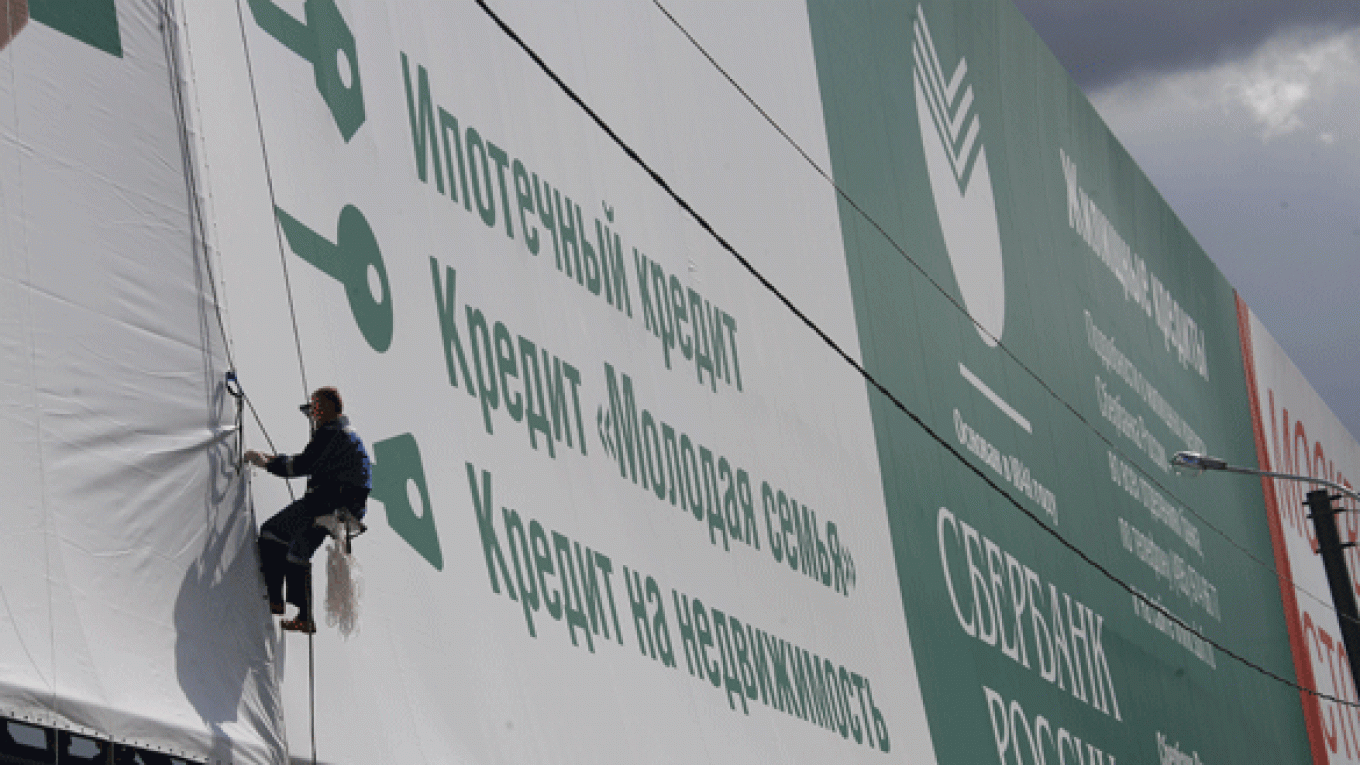Russians have turned to real estate as a safe haven for investment over the last two months amid the high volatility of world financial markets caused by Standard & Poor's downgrading the U.S. credit rating and the debt crisis in Europe, developers said.
"We have noticed … a sales increase in August, it's both direct sales of new homes and mortgage deals," said Pavel Kocheryozhkin, deputy chief executive of YIT Moskovia, a subsidiary of Finnish developer YIT.
Buyers' confidence in property as an investment option is back, said Pavel Cherkasov, first deputy chief executive of Zhilishchny Kapital, which works in Moscow and the Moscow region.
"We are seeing growing sales. … As judged by the number of negotiations, we'll exceed [July's] level," he said in e-mailed comments.
More buyers want to invest their savings into real estate, said Vladislav Lutskov, chief executive of analytical center MIEL. "Even during the 2008 crisis losses from falling property prices were incomparably lower than investors' losses from falling equity prices," he told The Moscow Times.
In July, MIEL received 50 percent more inquiries and closed 30 percent more deals than the previous month, with the trend continuing this month, Lutskov said.
According to Kocheryozhkin, housing in the Moscow region is one of the most attractive investment options because of the lower prices and a better ecological situation than in Moscow.
Average prices for new housing in the Moscow region are currently about 60,000 rubles ($2,000) per square meter, Kocheryozhkin said.
This is less than half the average Moscow price, which is 147,514 rubles per square meter, according to Metrinfo.ru, a real estate development industry web site.
Moscow region towns can also compete with the capital for quality of infrastructure, Kocheryozhkin said, adding that the southern and southeastern parts of the region are the most sought after locations.
Kocheryozhkin said the Moscow region remains the country's leader in housing construction, despite a projected decline this year.
Completed new housing projects in the Moscow region will only be 11 percent of the total amount of new housing built in Russia, versus 13.75 percent in 2009, he said, citing State Statistics Service data.
The decline is a consequence of the 2008 financial crisis, which resulted in many developers failing to complete their projects, as Russia's construction industry was among those hardest hit, Kocheryozhkin said.
Meanwhile, current market volatility is unlikely to pose a danger for developers, which are expected to meet the deadlines to complete their projects.
"In case of the worst crisis scenario in the world financial markets the real estate market could see a repetition of the situation of 2008 to 2009, and investment projects in construction will be the first to suffer again," Lutskov said. "Although, as of today, this scenario seems to be unlikely."
A total of 24.4 million square meters of housing was built in Russia between January and July, about the same as in the first seven months of 2010, the statistics service said Thursday.
The government hopes that new housing construction will almost double between 2010 and 2016, to reach 100 million square meters.
Developers are also optimistic about the market prospects.
Kocheryozhkin said housing construction volumes are likely to demonstrate growth again in the next three years due to the gradual recovery of developers' activity.
"Buyers have to acknowledge that the crisis, which affects Russia's economy in general ... can't affect the need to have normal housing," said Cherkasov of Zhilishchny Kapital.
A Message from The Moscow Times:
Dear readers,
We are facing unprecedented challenges. Russia's Prosecutor General's Office has designated The Moscow Times as an "undesirable" organization, criminalizing our work and putting our staff at risk of prosecution. This follows our earlier unjust labeling as a "foreign agent."
These actions are direct attempts to silence independent journalism in Russia. The authorities claim our work "discredits the decisions of the Russian leadership." We see things differently: we strive to provide accurate, unbiased reporting on Russia.
We, the journalists of The Moscow Times, refuse to be silenced. But to continue our work, we need your help.
Your support, no matter how small, makes a world of difference. If you can, please support us monthly starting from just $2. It's quick to set up, and every contribution makes a significant impact.
By supporting The Moscow Times, you're defending open, independent journalism in the face of repression. Thank you for standing with us.
Remind me later.






